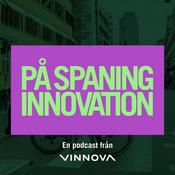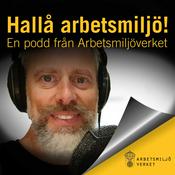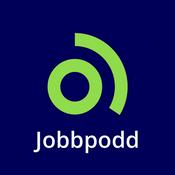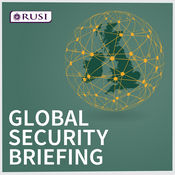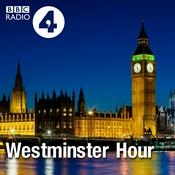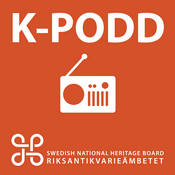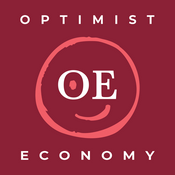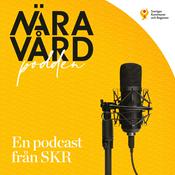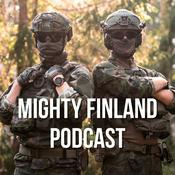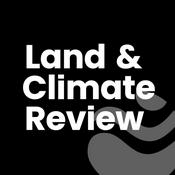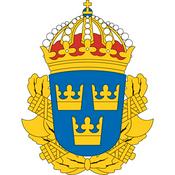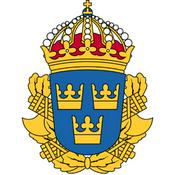Crossing Channels
Bennett School of Public Policy & Institute for Advanced Study in Toulouse
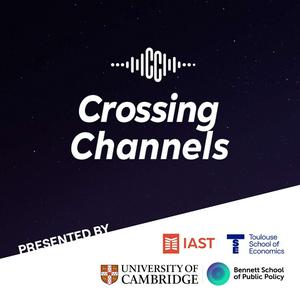
Senaste avsnittet
45 avsnitt
- In this episode of Crossing Channels, Richard Westcott talks to Dr Alessio Terzi from the Bennett School of Public Policy, and Prof Christian Gollier from the Toulouse School of Economics, about what a “fair” climate transition could look like when the costs are local, the benefits are global, and the politics are hard.
They explore why decarbonisation is a whole-economy transformation, what it means for jobs and places, and why the narrative matters as much as the technology.
The conversation also looks at carbon pricing and redistribution, the credibility problem of long-term policy, and what kinds of institutions and policies can keep people on board in the years ahead.
Season 5 Episode 4 transcript: MS Word / PDF
Listen to this episode on your preferred podcast platform
For more information about the Crossing Channels podcast series and the work of the Bennett School of Public Policy and IAST visit our websites at https://www.bennettschool.cam.ac.uk/ and https://www.iast.fr/.
Follow us on Linkedin and Bluesky.
With thanks to:
Audio production by Alice Whaley
Associate production by Burcu Sevde Selvi
Visuals by Tiffany Naylor and Pauline Alves
More information about our guests:
Podcast guests
Prof Christian Gollier’s research spans the fields of economics of uncertainty, environmental economics, finance, consumption, insurance and cost-benefit analysis, with a particular interest in long-term sustainable effects. He is a Fellow of the Econometric Society. He founded the Jean-Jacques Laffont / Toulouse School of Economics Foundation with Jean Tirole in 2007. He was its director from 2009 to 2024 (with a hiatus in 2015-2016). From June 2023 to October 2025, he was the first director of the “Grand Etablissement TSE”.
Dr Alessio Terzi is an economist working at the intersection of academia, think-tanks, and policy. He is Assistant Professor at the Bennett School of Public Policy, Cambridge, where he also directs the MPhil in Public Policy, and is an Adjunct Professor in Economics at Sciences Po. He is a member of the World Economic Forum Global Future Council on Equitable Transition. @terzibus.bsky.social - In this episode of Crossing Channels, Richard Westcott talks to Diane Coyle and César Hidalgo about how knowledge, ideas and intangible assets are becoming central to modern prosperity. They discuss what makes intellectual capital distinctive, how AI may widen or narrow inequalities, and why some places benefit more than others. The conversation also explores the challenges of measuring intangible value and what kinds of skills, institutions and infrastructure are needed for countries and regions to turn intellectual capital into broader, long-term growth.
Season 5 Episode 3 transcript: https://www.bennettschool.cam.ac.uk/wp-content/uploads/2025/12/Episode-3-Transcript_Final.pdf
For more information about the Crossing Channels podcast series and the work of the Bennett School of Public Policy and IAST visit our websites at https://www.bennettschool.cam.ac.uk/ and https://www.iast.fr/
Follow us on Linkedin and Bluesky.
With thanks to:
Audio production by Alice Whaley
Associate production by Burcu Sevde Selvi
Visuals by Tiffany Naylor and Pauline Alves
More information about our host and guests:
Podcast host
Richard Westcott is an award-winning journalist who spent 27 years at the BBC as a correspondent/producer/presenter covering global stories for the flagship Six and Ten o’clock TV news as well as the Today programme. Last year, Richard left the corporation and he is now the communications director for Cambridge University Health Partners and the Cambridge Biomedical Campus, both organisations that are working to support life sciences and healthcare across the city.
Podcast guests
Diane Coyle is the Bennett Professor of Public Policy at the University of Cambridge. She is the Research Director at the Bennett School of Public Policy. Diane’s latest book is The Measure of Progress: Counting what really matters.
Her own research focuses on productivity, the digital economy and AI policy, and economic measurement. Diane is currently a member of the UK Government’s Industrial Strategy Council, the New Towns Taskforce, and advises the Competition and Markets Authority. Diane was awarded a DBE in 2023 for her contribution to economics and public policy.
César Hidalgo is a Chilean-Spanish-American scholar known for his contributions to economic complexity and for his applied work on data visualization and artificial intelligence. Hidalgo is a tenured professor at the Toulouse School of Economics’ (TSE) Department of Social and Behavioral Sciences and the head of the Center for Collective Learning a multidisciplinary research laboratory with offices at Institute for Advanced Study (IAST) at TSE and the Corvinus Institute of Advanced Studies (CIAS) at Corvinus University of Budapest. He is also an Honorary Professor at the Alliance Manchester Business School of the University of Manchester. - In this episode of Crossing Channels, Richard Westcott talks to Jack Newman, Angélique Acquatella and Pinelopi Koujianou Goldberg about the forces that shape inequality today.
Drawing on economics, politics and public policy, our guests examine why gaps persist, look at the roles of technology and trade, explore evidence on health inequalities in the UK, and discuss the delivery gap between national ambitions and local capacity. They share examples of when place-based approaches can work, what gets in the way, and how institutions can support more inclusive growth.
Season 5 Episode 2 transcript: MS Word / PDF
Listen to this episode on your preferred podcast platform:
For more information about the Crossing Channels podcast series and the work of the Bennett School of Public Policy and IAST visit our websites at https://www.bennettschool.cam.ac.uk/ and https://www.iast.fr/.
With thanks to:
Audio production by Alice Whaley
Associate production by Burcu Sevde Selvi
Visuals by Tiffany Naylor and Pauline Alves
More information about our podcast host and guests:
Podcast host
Richard Westcott is an award-winning journalist who spent 27 years at the BBC as a correspondent/producer/presenter covering global stories for the flagship Six and Ten o’clock TV news as well as the Today programme. Last year, Richard left the corporation and he is now the communications director for Cambridge University Health Partners and the Cambridge Biomedical Campus, both organisations that are working to support life sciences and healthcare across the city.
Podcast guests
Angélique Acquatella is an Assistant Professor at the Toulouse School of Economics. She received her PhD in Economics at Harvard University. During her doctoral studies, she was an NBER Aging and Health Fellow and a National Science Foundation Fellow. Angélique's research looks at the optimal design of healthcare policy, within two main substantive areas: public health insurance systems and pharmaceutical payment policy. She is interested in policy designs that advance health equity, minimise risk for the most disadvantaged individuals, and incentivise socially valuable investments.
Jack Newman is a public policy researcher specialising in decentralisation and place-based policy. He is an Affiliated Researcher at the Bennett School of Public Policy, and a Research Associate at the University of Manchester, investigating the changing spatial footprint and governance structures of the NHS. In recent years, Jack has researched spatial inequality, local institutions, and healthy urban development at the Universities of Bristol, Cambridge, Manchester, Surrey, and Leeds.
Pinelopi (Penny) Koujianou Goldberg is the Elihu Professor of Economics and Global Affairs and an Affiliate of the Economic Growth Center at Yale University. She holds a joint appointment at the Yale Department of Economics and the Jackson School of Global Affairs. She is a member of the National Academy of Sciences and the American Academy of Arts and Sciences, recipient of Guggenheim Memorial Foundation and Sloan Research Fellowships, and recipient of the Bodossaki Prize in Social Sciences. Pinelopi is an applied microeconomist drawn to policy-relevant questions in trade and development. - In this first episode of series five, our Crossing Channels podcast host Richard Westcott welcomes three affiliated experts to explore how artificial intelligence is transforming higher education.
Jonathan Grant (Bennett School of Public Policy), and Jean-François Bonnefon and François Poinas (Toulouse School of Economics (TSE) & the Institute for Advanced Study in Toulouse (IAST)) share their different perspectives rooted in public policy, psychology, and economics.
They examine how AI is reshaping the way universities teach, conduct research, and connect with government, business, and civil society. They look into how generative tools are changing learning and assessment, how students and academics can build trust in AI systems, and what the rise of these technologies means for the skills and values that universities aim to foster.
Listen to this episode on your preferred podcast platform
Season 5 Episode 1 transcript
To find out more about the work of the Bennett School of Public Policy and IAST visit our websites: https://www.bennettschool.cam.ac.uk/ and https://www.iast.fr/.
Follow us on Linkedin and Bluesky
With thanks to:
Audio production by Alice Whaley
Associate production by Burcu Sevde Selvi, Bennett School of Public Policy
Visuals by Tiffany Naylor and Pauline Alves, IAST, TSE
More information about our host and guests:
Podcast host
Richard Westcott is an award-winning journalist who spent 27 years at the BBC as a correspondent/producer/presenter covering global stories for the flagship Six and Ten o’clock TV news as well as the Today programme. Last year, Richard left the corporation and is now the Communications Director for Cambridge University Health Partners and the Cambridge Biomedical Campus, both organisations that are working to support life sciences and healthcare across the city.
Podcast guests
Jean-François Bonnefon, is Director of the Social and Behavioural Sciences Department at Toulouse School of Economics (TSE) and the Institute of Advanced Studies in Toulouse (IAST). Jean-François is a CNRS research director, affiliated with TSE and IAST, and a cognitive psychologist whose work spans computer science, psychology, and economics. He is renowned for his expertise in moral preferences and decision-making, and is particularly recognised for his contributions to the ethics of advanced artificial intelligence, especially in autonomous driving.
Jonathan Grant is an Affiliated Researcher at the Bennett School of Public Policy, and Vice President for Strategic Initiatives at the King Abdullah University of Science and Technology (KAUST). In his work for KAUST, he leads efforts to enhance the institution's global and national impact through transformative academic programming and strategic partnerships. An expert in health R&D policy, research impact, and the evolving role of universities, Jonathan has worked across Europe, the Middle East, North America, and Australia.
François Poinas is Assistant Professor and Dean of Education at Toulouse School of Economics since October 2023. After completing his PhD in Economics at University Lumière Lyon 2, he joined TSE and University Toulouse Capitole in 2010. His research is about applied microeconomics, focusing on labor and education economics. He produces scientific articles on schooling, the dynamics of intra-firm promotions, and migration decisions. - In this final episode of season 4, Richard Westcott is joined by Catherine Barnard (University of Cambridge) and Emmanuelle Auriol (Toulouse School of Economics) to explore the economic, legal, and social dimensions of migration.
Drawing on insights from law and economics, the conversation explores how migration affects labour markets, legal protections, and social cohesion — from post-Brexit realities in Great Yarmouth, UK, to global questions of fairness and opportunity. The episode examines who migrates and why, the limits of current border regimes, and what more effective and ethical migration policies could look like.
Season 4 Episode 10 transcript: https://www.bennettschool.cam.ac.uk/wp-content/uploads/2025/08/S04E10-Final-transcript.pdf
Listen to this episode on your preferred podcast platform: https://pod.fo/e/309b75
For more information about the Crossing Channels podcast series and the work of the Bennett School of Public Policy and the Institute for Advanced Study in Toulouse, visit our websites at https://www.bennettschool.cam.ac.uk/ and https://www.iast.fr/.
Follow us on Linkedin, Bluesky and X.
With thanks to:
Audio production by Steve Hankey
Associate production by Burcu Sevde Selvi
Visuals by Tiffany Naylor and Aurore Carbonnel
More information about our host and guests:
Richard Westcott is an award-winning journalist who spent 27 years at the BBC as a correspondent/producer/presenter covering global stories for the flagship Six and Ten o’clock TV news as well as the Today programme. In 2024, Richard left the corporation and he is now the communications director for Cambridge University Health Partners and the Cambridge Biomedical Campus, both organisations that are working to support life sciences and healthcare across the city. @BBCwestcott
Emmanuelle Auriol is a French economist and professor at Toulouse School of Economics. Her research combines theory and empirics in industrial organisation and development economics, focusing on market failures driven by rent-seeking, cognitive biases, and discriminatory norms. Her work blends neoclassical and behavioural economics and has been published in top journals. A CNRS Bronze Medalist and member of the Institut Universitaire de France, she is also a fellow of the EEA, CEPR, CESifo, and EUDN. She contributes to policy and development work with institutions like the French Development Agency and the World Bank. She serves on the Conseil d'Analyse Économique, is a member of the Cercle des Économistes, and has authored two award-winning books.
Catherine Barnard FBA, FLSW, FRSA is Professor of European Law at the University of Cambridge. She is the author of EU Employment Law (Oxford, OUP, 2012, 5th ed.), The Substantive Law of the EU: The Four Freedoms, (Oxford, OUP, 2025, 8th ed), and (with Peers ed), European Union Law (Oxford, OUP, 2023, 4th ed). She is a member of the European Commission funded European Labour Law Network (ELLN). She is a Senior Fellow of the UK in a Changing Europe where she considers the legal issues around migration, together with the legal and constitutional issues associated with Brexit, in particular the Withdrawal Agreement and the Trade and Cooperation Agreement. She has appeared on the main media channels - BBC, ITV and Sky - as well as some of the more specialist programmes such as Law in Action, Woman's Hour, Question Ti
Fler podcasts i Stat och kommun
Trendiga poddar i Stat och kommun
Om Crossing Channels
Monthly podcast series produced by the Bennett School of Public Policy (University of Cambridge) and Institute for Advanced Study in Toulouse (Toulouse School of Economics) to give interdisciplinary answers to today's challenging questions. Hosted by Richard Westcott (former BBC journalist and now the communications director for Cambridge University Health Partners and the Cambridge Biomedical Campus) with guest experts from both universities. Subscribe to the Crossing Channels podcast feed https://feeds.buzzsprout.com/1841488.rss & download each episode at the start of the month.
Podcast-webbplatsLyssna på Crossing Channels, På spaning innovation och många andra poddar från världens alla hörn med radio.se-appen

Hämta den kostnadsfria radio.se-appen
- Bokmärk stationer och podcasts
- Strömma via Wi-Fi eller Bluetooth
- Stödjer Carplay & Android Auto
- Många andra appfunktioner
Hämta den kostnadsfria radio.se-appen
- Bokmärk stationer och podcasts
- Strömma via Wi-Fi eller Bluetooth
- Stödjer Carplay & Android Auto
- Många andra appfunktioner


Crossing Channels
Skanna koden,
ladda ner appen,
börja lyssna.
ladda ner appen,
börja lyssna.

